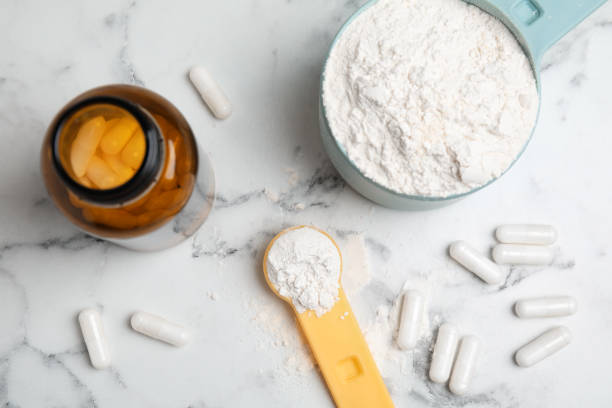Bromelain is a protein or enzyme that speeds up some chemical reactions in a cell; it is naturally present in some fruits and pineapple stems. It is available as a dietary supplement to ease pain, swelling and inflammation. The proteolytic and antiinflammatory properties of bromelain make it a natural treatment for various illnesses; when taken with rutin and trypsin, bromelain can improve osteoarthritis, improve joint function and relieve pain.
Also, studies have shown that it may help with sinus infections, knee pain from arthritis, colitis, and recovery from surgery. As a cream, bromelain can be used for burns and rashes. It is also available in powder, capsule, or tablet form and can be packaged with other supplements, such as conjugated linoleic acid.
Dosage
There is no standard dose for bromelain; the body can absorb a significant amount safely; some experts recommend taking from 80 to 300 mg in 2 to 3 divided doses. So, the dose is based on your condition; you can also ask your healthcare provider for medical advice to know what is suitable for your condition and to ensure you don’t consume it excessively.
Side Effects of bromelain
Bromelain may be a natural substance, but it can still have some side effects, especially in high doses. Some of the possible side effects include:
- Stomach upset.
- Menstrual problems.
- Increased heart rate.
- Vomiting.
- Difficulty breathing.
- Severely swollen or red skin.
- Nausea.
- A weak, rapid pulse.
If you experience these side effects, you must stop using the supplement and consult your doctor. Also, if you are sensitive or allergic to pineapple, bromelain may not be good for you. It can cause some allergic reactions that will range from mild to severe.
Precaution
This supplement can increase your risk of bleeding, so stop taking it at least 2 weeks before any surgical procedure. Also, let your doctor know if you have any medical history of bleeding disorders, liver or kidney problems, heart problems, stomach ulcers, or asthma before taking it.



